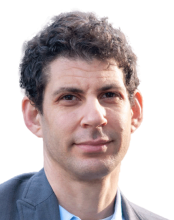
The mathematical theory of voting goes back at least 240 years to the Condorcet Jury Theorem, and mainly deals with the question of finding a rule, or a “function” that best aggregates the preferences of many people. Yet the implicit underlying assumption, that all (or even most) people actually vote is rarely met in practice. We quantify the bias in the outcome as more people fail to vote, and study the effect of possible remedies such as voting by proxy.
Truth discovery is a general name for statistical methods aimed to extract the correct answers to questions, based on multiple answers coming from noisy sources. For example, workers in a crowdsourcing platform. We suggest a simple heuristic for estimating workers’ competence using average proximity to other workers. We prove this estimates well the actual competence level and enables separating high and low quality workers in a wide spectrum of domains and statistical models.
Power companies such as Southern California Edison (SCE) uses Demand Response (DR) contracts to incentivize consumers to reduce their power consumption during periods when demand forecast exceeds supply. We design mechanisms that take into consideration consumers’ heterogeneity in consumption profile and reliability, and increase participation at a lower cost.